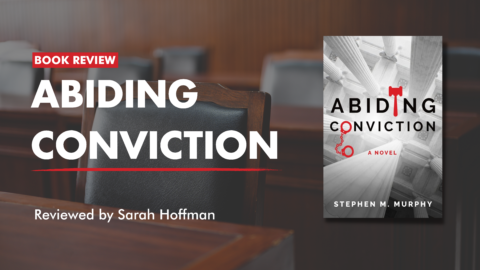Editor’s note: In the short period since press time, Justice Martin Jenkins has been nominated by Governor Gavin Newsom to serve on the California Supreme Court. Congratulations, Justice Jenkins!
A survey by the Bar Association of San Francisco shows a significant number of new attorneys aspire to be judges later in their careers. On June 25, 2020, the Barristers Club was honored to have Governor Gavin Newsom’s Judicial Appointments Secretary, Justice Martin Jenkins, take part in a virtual in-depth conversation with Barristers Club President Kelly Matayoshi.
Prior to being appointed in January 2019, Justice Jenkins served as an Associate Justice on the California Court of Appeal since 2008. From 1997 to 2008, he served as a judge for the U.S. District Court for the Northern District of California, and from 1989 to 1997 as a judge on the Alameda Superior Court and Oakland Municipal Court. Prior to his appointment to the bench, Secretary Jenkins worked as a prosecutor for the Alameda County District Attorney’s Office, with the U.S. Department of Justice in the Civil Rights Division-Criminal Section, and with the Pacific Bell Legal Department.
Justice Jenkins provided general information about the appointment process, as well as practical tips for pursuing appointment as a judge in California. Here are some of the highlights from the conversation.
The Application
The California Judicial Application can be found online at www.gov.ca.gov/instructions-for-completing-judicial-appointment-applications.
The application is currently made up of sixty-seven questions. Justice Jenkins suggested that anyone thinking of applying for appointment should download the application, read the application in its entirety, and then set it aside to allow time for thinking. Ask yourself whether being a judge is what you really want and if you can actually do the job. Not everyone is suited for or would enjoy being on the bench, and applicants should not apply without careful consideration.
The application is the first opportunity for the Judicial Appointments Secretary to learn about you as an applicant. Therefore, the application needs to be well written without typos or incomplete sentences. Not only should you carefully review your application, but you should also have someone else review it before it is submitted. When completing the section regarding prior violations, you should err on the side of full disclosure. In many instances a violation such as a DUI will not automatically disqualify a candidate from the appointment process, but failure to disclose likely will.
Letters of Recommendation: While there is no magic number, three letters of recommendation are more than enough. Since you are required to list five other references and identify counsel connected to your ten most significant cases, there are many people the Judicial Appointments Secretary will be able to contact during the vetting process.
However, the letters allow you to pick people who really know you substantially and can speak to your character and evaluate your work. If you merely choose someone to write a letter because of their stature or connections to the governor, it will be obvious and will not help you in the application process.
Governor Newsom’s Process
As the Judicial Appointments Secretary, Justice Jenkins reviews every application submitted. As he reads the application, he makes notes of the applicant’s experience and involvement in community activities. Justice Jenkins then decides which applicants are sent to the Judicial Selection Advisory Committees (JSAC).
JSAC assists in the process by looking for bias the applicant may have and determining the applicant’s temperament by interviewing opposing counsel and judges. After the committee has completed its vetting process, JSAC sends a report to Justice Jenkins, who compares his notes regarding the applicant to the JSAC report. Although JSAC may conclude an applicant should not be sent to the Commission on Judicial Nominees Evaluation (JNE), Justice Jenkins does not always agree with this determination and may send an applicant not endorsed by JSAC to the JNE for further vetting. For example, JSAC may find an applicant is not qualified because the applicant lacks significant trial experience, but Justice Jenkins may determine they are qualified because the complexity of their trials makes the applicant as qualified or more qualified than an applicant with less complex and diverse trials.
After Justice Jenkins reviews the JSAC reports and compares them to his notes, he sends about 10 percent of all applications to the JNE for further evaluation. Justice Jenkins also sends the applications to local bar associations, which further help evaluate a candidate.
The entire process can take a year or more to complete. However, Justice Jenkins stated that an application never goes offline and it may take two to three years before you are called about your application. If you submit an application, but do not hear back within a year, you should submit supplemental information to keep your application updated.
Traits and Attributes of Judicial Applicants
There are several legal skills that an applicant must possess. First, it is important to have an above-average ability to apply the law and write with persuasion. Second, the applicant must also be able to properly deal with conflict and practice law with ethics.
Outside of the necessary legal skill set, applicants must have traits that show they will be able to do the job. Applicants must be smart and their intelligence must be rooted in practicality. Sometimes a judge must make tough calls and be able to do what the law requires even if it is not the popular choice; this requires an applicant to have courage. Being a judge is about public service, so an applicant must be interested in serving their community through their position on the bench.
The most important trait Governor Newsom is looking for in a candidate is humility. Although the other values and traits are important, humility is what anchors all of the other values. It means a person is willing to be educated—so as a judge the applicant will listen to the parties, and litigants will know they were heard and understood. It also means the applicant understands there is a collective process of what the law is about.
Governor Newsom believes that we are better collectively when there is diversity, so it is important to him that there is a diverse bench. Diversity allows us to learn about the law in different ways and how it affects people. Justice Jenkins does not just look for diversity in race and ethnicity, he also believes it is important that judges are diverse in the practice areas they were in before they were appointed to the bench.
Advice for Newer Attorneys
When asked what advice he had for newer attorneys who aspire to be judges in the future, Justice Jenkins stated it is important that you be the kind of person you want others to be. Go high when other people go low. Be the best lawyer you can be and learn the most you can.
Although trial experience is important, Justice Jenkins noted that attorneys are trying fewer cases across the spectrum. Since newer attorneys may not have the opportunity to try as many cases as attorneys in the past, it is important to find other ways to develop the skill set that would be learned during a trial. For example, working as a judge pro tem or arbitrating cases would be helpful in learning the skill set and exposing the person to rules they may not be exposed to otherwise.
Also know that this process requires deep introspection. You have to determine whether you have the skill set necessary to do this job and want to do this job for the right reasons. So do your due diligence to have a sense of what this job is, and what current judges like and do not like about being on the bench. It is also important to get honest feedback from those around you, including judges, about whether they believe you would be good on the bench. Then reflect on the feedback you receive before deciding if being a judge is the right job for you.
About the author:
Courtney M. Brown is a litigator at the Law Offices of Mary Catherine Wiederhold and is a board member for the Barristers Club. Her practice focuses on representing tenants facing a variety of issues including wrongful eviction, housing violations, and fire-related losses.





0 comments on “Practical Tips for Pursuing a Judicial Appointment”